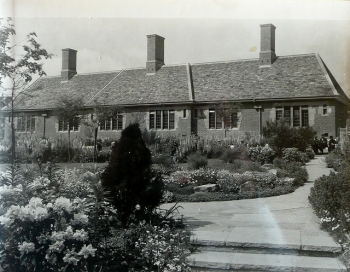Sinking Feelings in the Kitchen

Our kitchen sinks see some action over a lifetime and although they have been eclipsed by the dishwasher they remain the main place for rinsing, draining and cleaning food during preparation. They’re also subjected to the hardships of pan-soaking and other more robust cleaning tasks. In most cases they’re robust old things but the constant and often heavy traffic of daily use that they are subjected to means they can be one area that frequently needs a little additional maintenance. The common problems that surround kitchen sinks can happen to anybody but they tend to be those niggling little jobs that can take ages to get round too repairing.
Bad Smells
Noxious (or obnoxious) smells often permeate from our sinks. Normally this is caused by a problem in the drains or plumbing running from the sink to our waste water system. While a waste trap should stop most problems, sometimes a bit of food or waste escapes, lodges and then begins to rot. Environmentally unsound bleach does work a treat, but for those who prefer a gentler option try baking powder, acidic lemon juice or vinegar. Checking that the water trap under the sink is not full of gunk is also a good idea on a regular basis and is a simple DIY task.
Drips and Leakages
Most kitchens feature mixer taps at the sink which are very convenient indeed. Yet, like other taps they’re occasionally subject to leaks and drips. Most household taps get are used often and therefore over time the most common cause of an annoying drip is simply a washer in the tap failing. These are usually rubber or plastic and can perish or simply wear down through extensive use. While a dripping tap is often left for months, it is actually a quick and easy five minute job to fix. Ensure the mains water is off before dismantling the tap and replacing the offending washer; you may need to dismantle the tap to check the size first and then a second time to fit the new one. Although a plumber will happily do the work for a remarkably high fee it’s a pretty simple DIY task that nearly anybody can achieve.
Bunged up Drains
Like smells, the occasional blockage can develop which are annoying but usually easy to dislodge. Always have a plunger stored handily under the sink and when your sink starts draining slowly, get to work with it! Fill the sink about half full with warm water and plunge until the water drains away. Once the sink is empty pour a little bicarbonate of soda/baking powder down the drain and rinse with vinegar; the resulting fizzing mixture should remove any remain clogged up debris and sanitise the drain at the same time.
If you find that your kitchen mixer taps are dripping, then you should not simply leave the problem to worsen. Instead this job should be a simple one that you can do yourself; although be sure to turn off the mains water first.
Nigel Brown is a frequent contributor of content for Fit My Kitchen; he has written many articles pertaining to all things regarding commercial and domestic kitchen equipment but especially on such subjects as stainless steel sinks, kitchen mixer taps and htm64 standards for medical and dental sinks.
